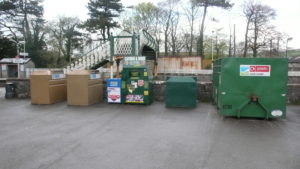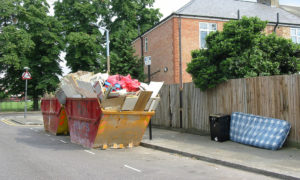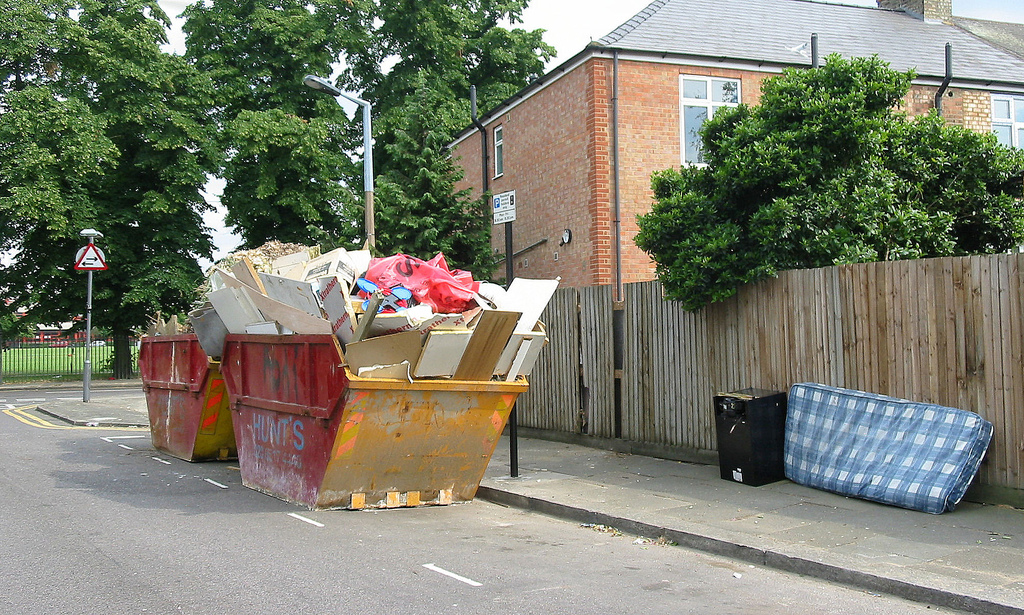13 December 2018
Moving In
Moving on.
By Lynda Goetz
 When I bought and moved into my first home in 1981 it was with my new husband (my parents nowhere in sight). At the time we both worked in the City and the house we found was in Clapham; Clapham North, the grottier end, just off the High Street. In those days it was all pretty rough, but there was a move to ‘gentrification’ – even though that was mostly in the Clapham Common and Clapham South areas.
When I bought and moved into my first home in 1981 it was with my new husband (my parents nowhere in sight). At the time we both worked in the City and the house we found was in Clapham; Clapham North, the grottier end, just off the High Street. In those days it was all pretty rough, but there was a move to ‘gentrification’ – even though that was mostly in the Clapham Common and Clapham South areas.
Memories of that time came flooding back as I helped my youngest daughter (single, no husband) move into her newly-purchased (with help) tatty, terraced house in the Easton area of Bristol. The similarities and the differences were striking. Easton, like Clapham North and Brixton back in the Eighties, is an ethnically mixed area – in fact much more ethnically diverse than those areas of London were. This is evident not just from looking around at the people on the streets, but from the restaurants, shops and pubs. Clapham High Street in 1981 had a wonderful Indian supermarket selling all sorts of spices, and it also had a small indoor market where, memorably, when I tried to buy ‘haricots verts’, the stallholder told me, “Nah, but I’ve got ‘mangy touts’ if you’re into them sor’a things”. The Caribbean presence was not so well represented by business, although the market did sell plenty of plantain and okra. The Muslim presence was very much Pakistani.
Stapleton Road in Easton is rough, tatty and full of small businesses; ‘International Supermarkets’; shops with closed shutters purportedly offering wholesale Afro and Euro beauty products; shops with names like ‘Hakuna Matata’ and ‘Al-Andalus Grill’, selling everything from pizzas to shawarma; solicitors specialising in criminal law; and mobile phone shops as well as a SubWay and plenty of kebab shops. The interestingly-named pub ‘The Three Blackbirds’ appears to be very much a meeting place for Caribbeans, whereas the exotically named ‘Damascus Nights’ (a kebab shop) is clearly where the Syrians and Turks head for their takeaways. When my daughter registered at the Health Centre, one of the questions was ‘When did you arrive in the UK?’ The former policeman turned estate agent, through whom my daughter found the house, commented on how the area had changed over the last ten years. “Ten years ago it was virtually a no-go zone,” he recounted, “now a lot of young professionals are moving in.” So, very much like Clapham and Brixton in the late Seventies and early Eighties, then.

As we brought our enthusiastic ‘doer-up’ mentality to Clapham, so my daughter and her friends are bringing change to Easton. Some things are different, though. In an age conflicted between recycling and the urge for instant gratification and up-to-the minute fashion, ‘hand-me-downs’ just won’t do. Whereas we gratefully accepted parents’ cast-offs and ransacked junk shops just to have stuff ‘until we can afford what we want’, this generation want stuff NOW and there is little standing in their way. No question of futons on the floor or army-surplus bedside tables, it can all be purchased online, on credit or at Ikea. Online there is everything from brand new to stuff on Freecycle. On credit, everything from your own credit card to store cards to interest-free credit on DFS and other sites. As for Ikea, the closest we had to that was Habitat, and in terms of volume it didn’t even come close.
When we came to replace those army-surplus bedside tables (not for far too many years, by the way), the junk shops had gone, to be replaced by the tip store and the charity shops. There are no longer ‘rag and bone men’ (I am not kidding – we had one who used to come round occasionally with a pony and cart looking for old furniture), and our children’s generation do not want to be stuck with stuff they don’t want or don’t like. They take a no-compromise attitude to ‘stuff’. They can buy it cheaply and, with a fairly easy conscience, discard it easily. Someone will come and collect if they advertise on Freecycle, or they can (if they have the means of transport) take it to the tip store or the charity shop. If, as is quite likely to be the case with much of today’s mass-manufactured products with the necessary inbuilt obsolescence, the item has quickly become tired and tatty, then why would you not simply recycle it at one of those amenity centres, as rubbish tips are now known? Back in the day, certainly in the Borough of Lambeth where our new home was fortunately situated (or unfortunately, depending on how you looked at it), our generous left-wing Labour council used to provide fortnightly or even weekly skips at the end of roads so that people doing up houses could easily get rid of unwanted furniture, walls, windows, fireplaces, doors, tiles and other paraphernalia. Skips could be great places to pick up some very useful items which others had discarded as rubbish – and all provided free (well, at least for the exorbitant amount those in Labour areas had to pay for their rates, as council taxes were then called).
On Sunday I offered my daughter a small sofa and an oak dresser (both of which I have been storing, as you guessed, for such an occasion). Both were turned down. She would prefer to look for the items she ‘really wanted’; even though this comment was swiftly followed up by a moan about how difficult it was to get the house sorted owing to work commitments. How can you take advantage of a Groupon offer on mattresses when you cannot be there to sign for the free delivery? Now, although she may not think so, I too do know about work commitments. She is right in saying that hers are more difficult to resolve, working as she does as a junior doctor in the NHS, for, as highlighted by Luke Mintz writing in The Telegraph, junior doctors face difficulties in organising free time unknown in many other walks of life. Nevertheless, the timescale seemed to be not months or even weeks, but days!
 Things won’t and almost certainly can’t go back to the post-war mentality of ‘make-do and mend’ with which I was brought up and which in many ways is hard to shake off, but it is our generation which has been responsible in large part for the massive rise in conspicuous consumption and materialism. It is probably hypocritical to accuse our children’s generation of the same thing. They are aware of the conflicts, but it is a different age and there are different ways of doing things. When you can buy a brand-new carefully packaged (the plastic is recycled) 18-piece crockery set for £20 from Ikea, why would you want to take a whole load of mismatched plates and bowls from your parents’ attic – even if they cost nothing? £25 does not take long to earn and those old plates should just be recycled – or do I mean binned?
Things won’t and almost certainly can’t go back to the post-war mentality of ‘make-do and mend’ with which I was brought up and which in many ways is hard to shake off, but it is our generation which has been responsible in large part for the massive rise in conspicuous consumption and materialism. It is probably hypocritical to accuse our children’s generation of the same thing. They are aware of the conflicts, but it is a different age and there are different ways of doing things. When you can buy a brand-new carefully packaged (the plastic is recycled) 18-piece crockery set for £20 from Ikea, why would you want to take a whole load of mismatched plates and bowls from your parents’ attic – even if they cost nothing? £25 does not take long to earn and those old plates should just be recycled – or do I mean binned?


